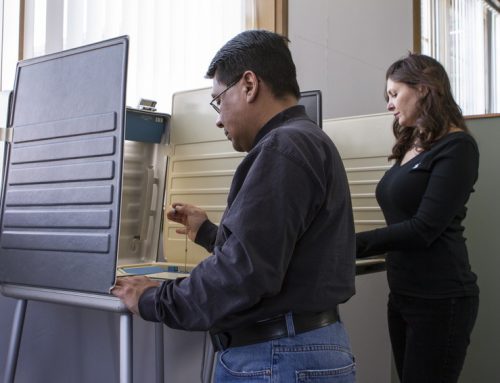(As discussed on WRVA’s Doc Thompson Show, Friday, Feb. 4)
Is it OK for state senators to break the rules when conducting General Assembly business? More specifically, does a Senate subcommittee have the authority to take final action on a bill referred to it by a committee chairman?
Last year and this year, bills in the General Assembly that were heard by a few Senate subcommittees were not allowed to rise to the full committee to be heard, per the Senate rules.
To understand why this is a problem, first you have to understand how a bill works its way through the General Assembly.
The General Assembly is the law-making part of our government and has two parts called houses: the House of Delegates and the House of Senate (or just the Senate). For efficiency, each house is then broken down into committees to consider the bills. Most committees are then broken down into subcommittees. Every bill, which is basically an idea or plan ostensibly to improve government, must be introduced in one house or the other. The bills are then assigned to a committee. The chairman of each committee then has the discretion to send a bill to a subcommittee or not.
Once a bill is heard in a Senate subcom., the subcom. can only make a recommendation on whether or not the full Senate should hear the bill. It is non-binding. Even if a bill receives a negative recommendation, Senate rules state that a bill must rise to the full committee for consideration. Then, if the full committee desires to kill a bill, it may, and the vote would be final. On the other hand, it could “report” the bill, and thus allow it to rise to the full Senate for its vote.
The problem this year and last year occurred when certain bills went into subcoms. of the Senate Courts of Justice Committee last year and the Senate Privileges & Elections Committee this year. There, they received negative recommendations, i.e., the subcoms. voted that the bills should not rise to the full Senate. Then the chairmen of these committees would not allow the bills to rise to the full committees.
The full committees, however, are the only ones in the Senate with the authority to decide whether a bill should be heard in the full Senate, not the subcoms.
The reason we even know about this is because my fellow citizen lobbyists from the Richmond TEA Party and I have been monitoring these committees as closely as our free, volunteer time will allow us. We watched this happened. And we knew it was wrong.
Then, last year, toward the end of the session, Sen. Jill Holtzman Vogel of Winchester submitted a request to the Lieutenant Governor, Bill Bolling, who is the president of the Senate, asking for guidance on the rules of the Senate. Specifically, he was asked to give guidance on whether or not a Senate subcommittee has the authority to take final action on a bill referred to it by a committee chairman.
Last March, he issued a memorandum citing all the applicable rules and concluding in an objective manner that “Senate subcommittees do not have the authority to take final action on any bill or resolution referred to them.” He went on to say that “the subcommittee is only empowered to make recommendations to the full Committee. The ultimate authority of taking final action on such bills and resolutions rests solely with the full committee.”
This memo is not law, and it’s not a ruling like from a judge. But the lieutenant governor is the president of this supposedly collegial body of men and women that We the People of Virginia entrust with making the laws that govern our lives in the Commonwealth. As part of that collegiality, they have written rules that they reintroduce every session of the General Assembly by which they agree to abide. When certain chairmen of committees begin ignoring those rules, it creates a lot of tension in the Senate and for us citizens. How can we trust the process when they won’t live by the rules? If they are breaking this rule, what other rules might they be breaking but we don’t know about?
Dozens of bills have been affected. They include several resolutions such as the Repeal Amendment resolution; a VA Constitutional Amendment dealing with eminent domain, the right to work, and the right to a secret ballot; a bill calling on the General Assembly to post its bills for 72 hours; and others. The subcommittees where these bills are waiting include one in Senate Privileges & Elections, another in Senate Privileges & Elections, one in Senate Rules, one in Senate Courts of Justice, and another in Senate Courts of Justice.
To correct this, I would suggest that people call upon the leaders of the Senate, specifically the chairmen of the committees, and demand that they obey the rules they themselves have set. And if it means that they must call an additional full committee hearing to hear those bills that have not risen to the full committee before next Tuesday when all bills in each house must have been heard before they go over to the other house, then so be it. Leaving a voice mail and sending an e-mail over the weekend would be best.
The three problematic Senate committees and chairmen this year are:
- Senate Privileges & Elections chairman Janet Howell
- Senate Courts of Justice chairman Henry Marsh
- Senate Rules chairman Mary Margaret Whipple
You should also contact the Senate Majority Leader Richard Saslaw.
These days, calling will get more immediate attention. And if you really desire to get their attention, call their local district offices. Enough calls there and the chairman will pay attention. And remember it’s the chairmen of the full committees, not the subcommittees, whom we’d like to address.





